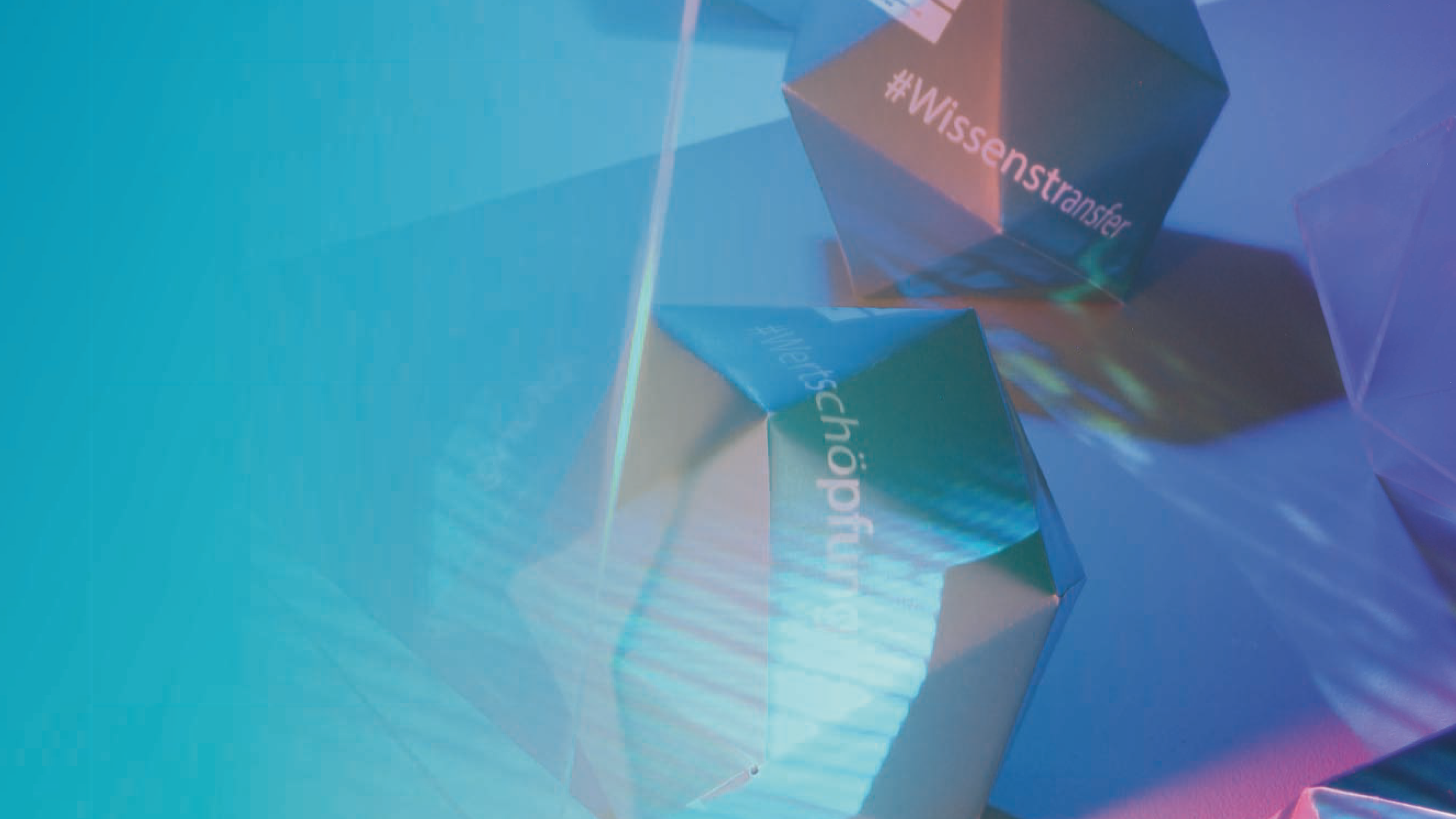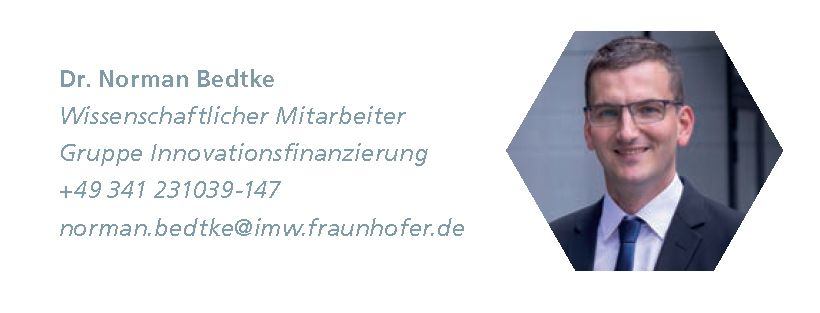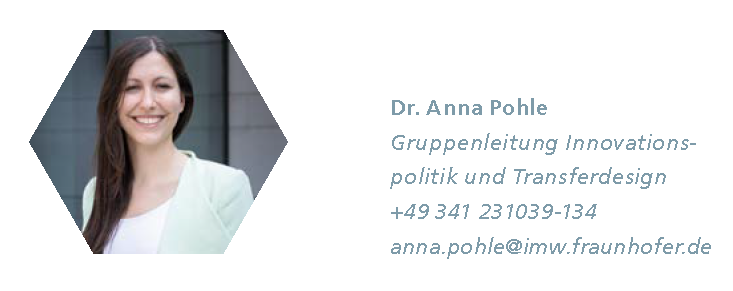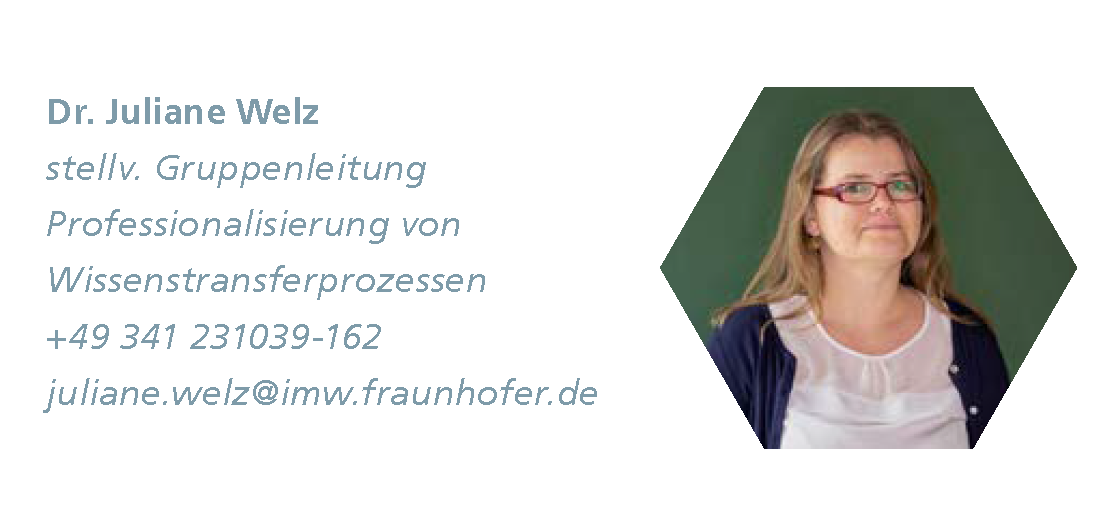Small and medium-sized companies depend on collaboration with scientists. This is why politicians also want to see a good exchange between business and research – but how does this really work? In recent years, researchers at the Fraunhofer IMW have investigated how companies can find the right scientific research findings and how researchers can find the right industry partners – also internationally – to jointly explore new value creation potentials.
Building bridges – Knowledge transfer between business and research
ClusterFeedback – From insight to innovation through crowdsourcing
It is mostly thanks to the iterative approach of product developers who continuously incorporate feedback from the target group and other stakeholders into idea development that, for example, a cell phone meets the customer's requirements. Early feedback processes are also becoming increasingly important for research, so that scientific findings and new technologies can find their way into applications more quickly. The BMBF project ClusterFeedback has investigated these feedback processes between research and the market and developed and successfully tested a platform for crowd-based collaboration.
Together with the project partner "Innovation Service Network" and Fraunhofer IOF, the Leipzig scientists first determined the need for feedback and suitable incentives for participation, so that both sides - scientists and market players - repeatedly use the crowd-based platform for feedback processes and idea generation. It turned out, for example, that direct remuneration is not necessarily needed for people to be motivated to participate in innovation projects. Interest in new technologies, exciting projects or interesting teams and the desire to support these projects are also decisive.
[...]
How do co-innovations between Fraunhofer researchers, start-ups and SMEs succeed?
It sounds like a perfect symbiosis: Founders with a product vision get the innovative research ideas of Fraunhofer scientists on board. Together, they participate in Fraunhofer CoLab, the high-tech accelerator for Fraunhofer start-up collaborations, and successfully launch their co-innovation on the market. What sounds straightforward is not always so simple in practice. How can such a cooperation actually be initiated?
In order for the right entrepreneurs to join forces with the right researchers, platforms are needed for targeted networking. Researchers at Fraunhofer IMW are working with the Fraunhofer-Gesellschaft‘s spin-off department, Fraunhofer Venture, to further develop existing meeting spaces and create new one‘s.
Algorithms optimize "Fraunhofer Match" platform
In the research project "Open Venture Factory", a Fraunhofer IMW team is programming a digital interface for the "Fraunhofer Match" platform that uses Natural Language Processing to reduce incoming cooperation requests to core topics and offers the option of subscribing to these core topics. The language models, programmed on the basis of artificial intelligence, accurately analyze unstructured texts. As a result, users of the platform can sift through large volumes of incoming data in a targeted manner and initiate new collaborations more efficiently.
[...]
Knowledge transfer for digital agriculture
Drought stress, a shortage of water for plants, is a problem for many farmers. Digital technologies that detect water shortages at an early stage can help to safeguard yields and quality. However, small and medium-sized farms in particular often lack the time and capital to independently tap into the various technical and digital options. The EXPRESS research project, an experimental field funded by the German Federal Ministry of Food and Agriculture, has been making this possible since 2019. Together with Central German farmers from the fruit and wine-growing sectors, researchers are testing market-ready technologies and digital solutions directly on site.
Knowledge transfer is a central pillar of the project to ensure that the dialog between science and practice is successful and that people from outside the field can also use the knowledge gained in the project. A Fraunhofer IMW research team is responsible for the knowledge transfer strategy of the joint project. In the past few years, the researchers have developed a visionary target for fruit and wine growing in 2024, published practical publications, and held specialist conferences and trade fair presentations. The team also designed a mobile exhibition stand, the "Mobile Barn", which provides information about individual technological solutions at trade fairs and on-site at farms. The constant, trusting exchange with the practical partners is the foundation of the work of the Leipzig project team.
[...]






